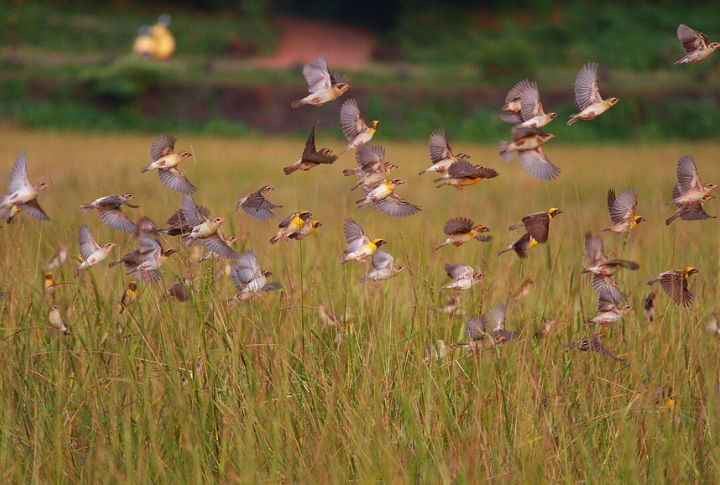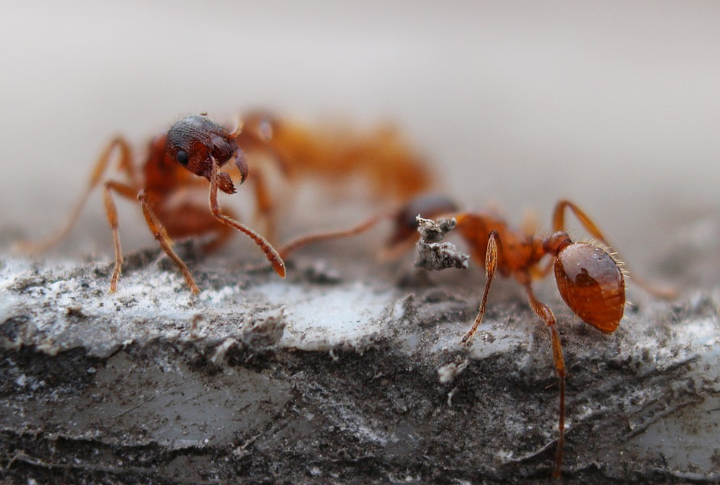
While humans rely on technology to forecast disasters, animals seem to read the earth itself. They flee or act strangely, sometimes hours before trouble begins. These behaviors aren’t always understood, but they’ve been observed across species. Here’s how animals show us that nature might have its own warning system.
Elephants Detect Earthquakes Through Their Feet

Seismic tremors don’t escape an elephant’s attention. Specialized foot pads sense low-frequency vibrations long before humans feel a thing. Hours before earthquakes, they’ve been seen moving as a group toward higher terrain. Elephants also use trunk-to-ground contact to amplify vibrations for better detection and coordination.
Dogs React To Shifting Air Pressure Before Storms

Even slight changes in barometric pressure or static electricity don’t go unnoticed by dogs. Some grow agitated before storms, pacing rooms or hiding under furniture. These behaviors can occur well before any visible weather signs appear, which suggests they detect cues that remain imperceptible to humans.
Birds Flee Disaster Zones Before Humans Detect Danger

Before humans notice a thing, birds often vanish. Some abandon migration routes mid-flight, while others disappear from common roosts. Scientists suspect birds respond to infrasonic sound or magnetic changes. Their sudden silence or flight might be the earliest alert nature has to offer.
Sharks Sense Pressure Waves From Underwater Tremors

They don’t wait for storms to hit. Sharks’ lateral lines, a sensory system along their bodies, pick up underwater vibrations from great distances. These signals can prompt sharks to flee the coastline or dive deeper, sometimes hours before a hurricane or underwater quake begins.
Ants Change Nesting Behavior Before Earthquakes

Ants don’t just react—they restructure. Red wood ants have been observed pausing their daily routines up to 24 hours before quakes. They may detect gas leaks or electromagnetic shifts in advance. Even after the tremors end, their behavioral changes linger into the next day.
Cows Become Restless And Huddle Before Earthquakes

GPS-tracked cattle herds have clustered abnormally prior to seismic activity, sometimes refusing food or shelter. These changes come with no external triggers. Vibrational sensitivity in their hooves or skulls could explain their mysterious, pre-quake restlessness and avoidance behaviors.
Bats Leave Roosts Unexpectedly Before Storms

Bats know when to bolt. Changes in air pressure or humidity push them into sudden, erratic flight. Some abandon their roosts entirely, while others fall silent. Their echolocation helps them interpret atmospheric cues with uncanny precision, often far earlier than any human weather forecast.
Snakes Flee Their Winter Dens Early Before Quakes

In China, monitored snakes abandoned their dens days before quakes. This suggests that snakes breaking hibernation early is no coincidence. Sensitive to shifts in ground vibration and temperature, they rarely surface in winter without cause. When they do, it’s nature’s warning that something bigger is coming.
Lions Become Hyper-Vigilant Before Major Disasters

Even apex predators grow uneasy. Lions have been seen pacing and steering clear of waterholes before disasters. This unusual behavior hints they may sense low-frequency vibrations or atmospheric shifts—things far beyond our perception, yet clear enough to change their routine.
Horses Panic And Refuse Commands Before Quakes

Hours before seismic activity, horses don’t hide their nerves, as some panic or ignore riders completely. Even the best-trained equines sweat excessively or stomp restlessly. Their hooves may detect microtremors long before human instruments do. The instinct overrides commands from trusted handlers.

